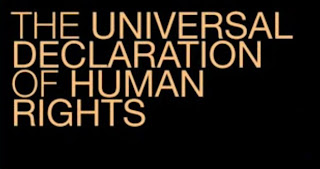
Medecins Sans Frontieres has released their annual list of the ten most underreported humanitarian crises in the world. In the spirit of giving these crises a bit more exposure, I'll reprint the list here with a few comments. What's good about this list is that it specifically avoids the temptation of numbering them on an ascending scale of importance. It's difficult enough to draw attention to unsexy and unexciting humanitarian issues, but it would be equally unhelpful to start a "countdown" to the "number one most underreported humanitarian crisis".
Somalia
Somalia's humanitarian catastrophe has been chronic and pervasive. The entire country essentially disintegrated years ago in 1991, and for a long time the only semblance of order the country found was in the fundamentalist, milita-enforced rule of the Islamic Courts of Justice, until they were ousted by Ethiopian troops. The country is basically off limits to international aid agencies because no one can guarantee them even a provisionally safe environment in which to deliver aid.
Ethiopia
Neighbouring Somalia, Ethiopia is not doing much better. The population is largely nomadic, and combined with tensions between rebel and government groups and an incipient civil conflict, delivering aid to this incredibly poor country has become very difficult. This is one of those examples where there has been no catalyst, no major newsworthy event that can be used as a lens through which to see the poverty of the country. Instead a series of boring and complex structural factors contribute to the suffering of Ethiopia's people, relegated to anonymity with the occasional exception of a "special report" in the news.
Myanmar
In May this year, the typhoon that wrecked much of Myanmar dominated the news very briefly. What was equally important at that time was how the military government was completely blocking off a lot of foreign aid that the news coverage of the crisis spurred. Several months on, the situation has returned to a semblance of normalcy, and so Myanmar has once again been forgotten. Normalcy, though, in the case of Myanmar, means destitution and crushing military rule. There is a full blown AIDS epidemic in the country, with over 75 000 people needing anti-retro viral treatment, yet the country has the lowest amount of foreign aid per capita in the world.
Zimbabwe
See previous articles on the topic. But just to add to the chorus, because of the appalling health situation there (especially the prevalence of AIDS), the UN found that the country now has a life expectancy of 34 years.
Democratic Republic of Congo
This again is a crisis that has been fairly well reported, but consistently remains second- or third-tier news. The renewed fighting in the eastern portion of the country, spurred by a
dickhead warlord Laurent Nkunda, has caused massive displacement and dislocation of thousands of villagers. Without even mentioning the deaths, the child soldiers, the cholera and malaria outbreaks due to nonexistent sanitation and healthcare, this situation pushes hopes for any sort of progress for the country far into the future.
Pakistan
The federally administered tribal areas in Northwest Pakistan, bordering on Afghanistan, have long been problematic for the country's security situation, as their goals are sharply opposed to the modernising government of the country. The resulting clashes, combined with the proximity to Afghanistan, brings conflict, poverty, the Taliban, and US explosives onto the scene. The whole area is basically the USA's battleground, so MSF and other NGOs have understandably found it difficult to provide aid and services.
Sudan
The situation in Sudan has been fairly well depicted in the media, despite excessive obsessing over the possibility of "genocide" in the region. What is more pressing than the questionable assertion that concerted ethnic cleansing is going on is the complete lack of infrastructure, stability, or security in Darfur, and the constant spasms of violence that wrack the region. The world's largest humanitarian operation is in place there, but the needs of Darfuris far outweight the services provided.
Iraq
Iraq has truly become a third world country since 2003, subject to a systematic dismantling of first its government (with the US-led disintegration of the Baathist state following the war), then the economy (with the massive internal displacement and complete lack of security which makes planning and investment impossible), and finally, society (with the USA playing Shia, Sunni and Kurd factions against each other).
Childhood Malnutrition
This is really a deceptively vital problem, and I didn't really consider it before I read the report. 178,000,000 children worldwide suffer from severe malnutrition problems. The tragic thing about this in particular is that malnutrition as a child stunts your prospects as an adult. It causes mental and physical problems which go on to replicate themselves in following generations. A starved child will grow up into a weak and dull-minded adult, who will be less likely to provide food for his or her children. Ensuring that children get enough food is such an incredibly basic thing, and it definitely requires more attention.
HIV/TB Co-Infection
The AIDS pandemic has been widely reported on and recognised. An important link that MSF emphasises is that between Tuberculosis and AIDS. TB is the most frequent killer of people with AIDS, and it is especially prevalent in countries which happen to have high incidences of AIDS, which is the reason countries like Botswana and Zimbabwe have life expectancies of 37 and 34, respectively. AIDS does more damage than the sum of its parts, as well, since the deaths fall disproportionately on the sexually active, which happen to also be the productive adults in society, leaving societies populated entirely by children and the elderly.
It's easy to be overwhlemed by all this suffering and seemingly ingrained conflict crisis. But as a starkly editorial comment, I want to exhort both my readers to seriously, seriously not give up. Good work is being done, and the mere recognition of these problems is a step forward, not an admission of defeat.
To view the excellent MSF feature on this, which has a lot more facts and a lot less opinionated rhetoric,
go here.
 Yesterday Israel opened the crossings to Gaza which had previously been blockaded by the Israeli Defence Force, and for the first time in months allowed aid through to the beleaguered Hamas stronghold-town. This was an unusual move, since the six-month truce that both parties were following ended a few days prior when some Gazans decided it would totally hilarious to fire rockets into Israeli settlements.
Yesterday Israel opened the crossings to Gaza which had previously been blockaded by the Israeli Defence Force, and for the first time in months allowed aid through to the beleaguered Hamas stronghold-town. This was an unusual move, since the six-month truce that both parties were following ended a few days prior when some Gazans decided it would totally hilarious to fire rockets into Israeli settlements. 












 rtant. Ghana is very much part of the African experience and progression. North African countries like Algeria and Egypt are ruled by different political cultures and norms. They are affected by Arabism and their proximity to oil and the Mediterranean Sea. Likewise, South Africa had its experience with Apartheid, and its flirtation with wealth.
rtant. Ghana is very much part of the African experience and progression. North African countries like Algeria and Egypt are ruled by different political cultures and norms. They are affected by Arabism and their proximity to oil and the Mediterranean Sea. Likewise, South Africa had its experience with Apartheid, and its flirtation with wealth. 



